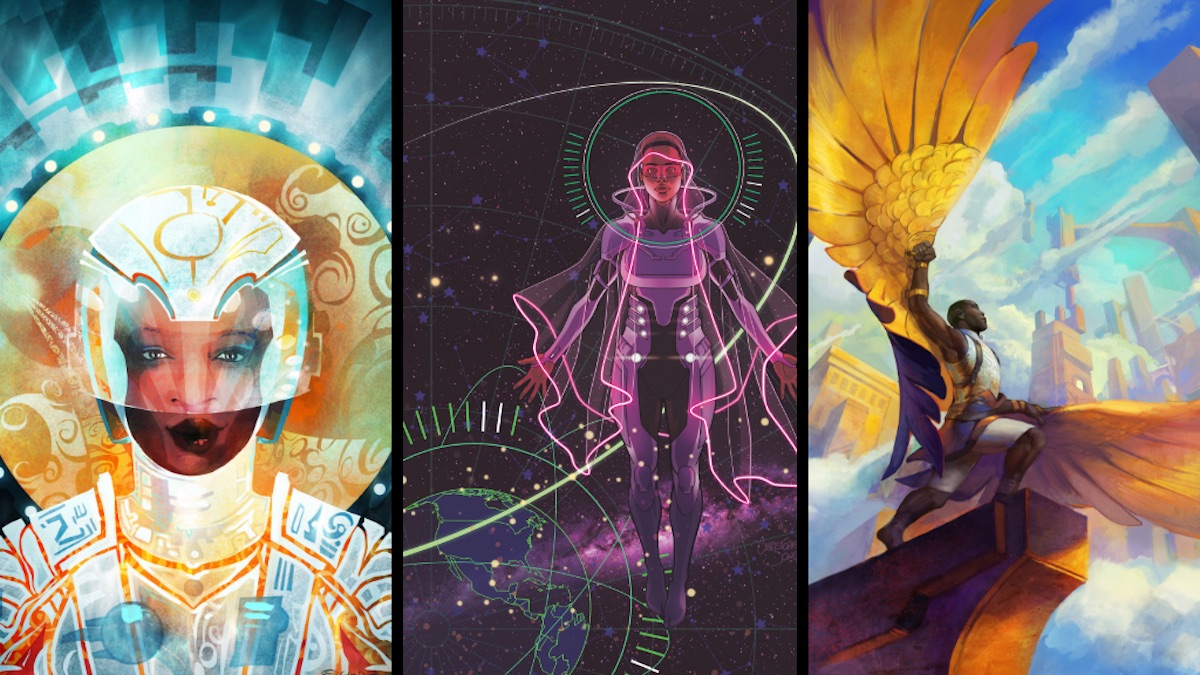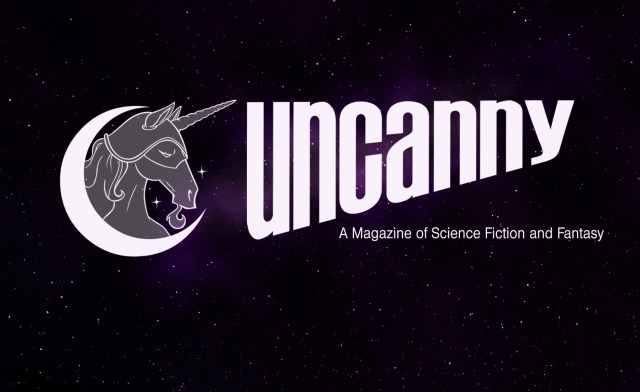This year, there has been some controversy about the Best Related Work Hugo nomination for An Archive of Our Own (AO3), the fan-run, fan-maintained fanfiction archive. (As an aside, as a professional librarian, may I note for the record that AO3 has one of the best taxonomy and tagging systems I’ve ever seen for an aggregator site. I wish that library catalogs worked this well, but most library systems don’t have the staffing to maintain the mix of automated and user-generated tagging and moderator based aggregation that the AO3 community uses. Seriously, it is to weep.)
I’ve been through a couple of Hugo Award controversies of my own. (A book I co-edited with Tara O’Shea and a story I edited/published while at Apex Magazine were featured in Wired magazine as examples of the works being accused by the Sad Puppies of ruining science fiction and the Hugo Awards by, basically, existing.)
Many of the modes of protest of these works come directly out of Joanna Russ’s How to Suppress Women’s Writing, which points out the different ways that the work of anyone from an underrepresented community are devalued by “the mainstream” the moment they begin to gain some prominence.
In the case of these controversies, the people most upset about the growing visibility and awards success of women and nonbinary folks, people of color, LGBTQIA folks, disabled people, and others who are not heterosexual cisgender white guys … are heterosexual cisgender white guys. There is an undercurrent of being distinctly baffled that anyone who doesn’t look like them could possibly produce quality work that would compete with (and, in recent years, outshine) work by people that look just like them.
Noticing the existence—never mind the competence, or, in many cases, excellence of the work—of members of underrepresented communities (including myself, a cisgender bi/pan white woman) led to us being immediately dismissed as “impossible” or we are informed that we must somehow have “gamed the system” or “cheated” to get where we are.
While there was a lot of response to my work in this particular scenario, I didn’t seem to exist within it. The folks who were upset about books like Chicks Dig Time Lords and stories like “If You Were a Dinosaur, My Love” by Rachel Swirsky ruining science fiction by winning awards attacked the concept and existence of the book, and the writer of the story was attacked, but not the editors. I do find it terribly interesting that as the gatekeeper/decisionmaker for these two works, my role in helping them to get published didn’t seem to exist, despite my name on the book cover and the masthead.
Which is a weird sort of erasure for works that pissed a group of people off so badly that they founded a movement to game and “reclaim” major awards from “us.”
That, dear readers, is some bullshit. And, in particular, I would argue that it was rather gendered bullshit in this case. The argument against Chicks Dig Time Lords specifically was that it shouldn’t have existed at all, because there were clearly a) no women in Doctor Who fandom, and clearly those women should they exist b) would not have interesting tales to tell of their contributions to the fandom.
Chicks Dig Time Lords needed to exist specifically because it documented the contributions of women to organized media fandom, in a fandom that was convinced that “women who like Doctor Who didn’t exist.” This was an opinion that would change significantly with the influx of new fans into the fandom after the new series debuted and took hold, but it was Received Fan Wisdom in relation to the classic series.
The work of founding and running fan conventions in the United States, in particular, was predominantly done by women, and consistently overlooked in the historical record. Conventions apparently “magically happened” through significant efforts by half the population that somehow didn’t actually exist at those same conventions.
Those predominantly female-centric fanworks were erased, just because a subset of cishet white guys didn’t notice us, and didn’t value the work we were doing. Just because a fannish activity isn’t someone’s particular cup of tea does not mean one gets to erase them or pretend they don’t exist. That is gatekeeping nonsense.
Which brings me to AO3, themselves experiencing specifically gendered bullshit this year, for their work tied to a fandom activity that historically has been viewed as deeply feminized and therefore devalued: fanfiction.
It’s not a new phenomenon. Chicks Dig Time Lords discussed the history of a bunch of female-centric fannish activities, many of which had been present since the 1960s—occasionally growing out of or adjacent to Star Trek fandom. Costume contests, filk (fan music) and fan conventions had been going on for written science fiction fandom from at least the 1940s.
When you love something so much that you want to create something (a story, a film, a critique, a costume, a model, original art, a collection of merch) to add to it to demonstrate that love and share it with others, that is a fannish activity. Fannish activities serve multiple purposes and multiple audiences, and fanfiction in particular is no different. It can expand a fictional universe, critique it directly, critique it obliquely, re-imagine it, mash it up with other universes, and more.
Fannish activities create communities, and here is where the true magic lies, particularly in fanfiction. I went from fannish community work as a novice editor to co-editing Uncanny Magazine, with my husband Michael Damian Thomas.
Uncanny does not exist without fanfiction, and the vibrant fanfiction community. Though I don’t write fanfiction myself, I have partaken on occasion. Many fanfiction writers and readers have, over time, gone on to traditionally publish original works in worlds of their own making. Quite a few of them have ended up in Uncanny: Seanan McGuire, Naomi Novik, JY Yang, Paul Cornell, KM Szpara, Vina Jie-Min Prasad, and Sunny Moraine to name a few. We’ve even had essays by Briana Lawrence and Tor editor Diana M. Pho about fanfiction.
Works published in Uncanny have been nominated for or won over 70 major genre awards since we first began publishing in 2014. And, of course, Vina Jie-Min Prasad’s “Fandom for Robots” was all about fanfiction, and was nominated for Hugo, Nebula, Locus, and Sturgeon Awards. Clearly, there is something to this whole fanfiction thing.
What does fanfiction bring to original fiction? An emphasis on developing characterization and relationships, emotional arcs that are valued just as much as the plot arcs, ongoing feedback from audiences, and world-building. The tools developed in fanfiction absolutely help make awesome original fiction. This is how writers learn to hone their craft, to produce regularly, and get motivated to keep writing.
Fanfiction communities help turn people maybe thinking about writing but scared to try into people who, through community encouragement, write. Whether that’s through NaNoWriMo meetups, or Yuletide fiction exchanges, or communities providing ongoing feedback to writers just starting out, there is nothing so powerful as when the feedback one receives from trying something new and scary is “YES! DO MORE! You are learning so much and that’s GREAT!”
That kind of encouragement is invaluable for writers. You can’t get better at writing without doing a ton of it, and writing as an activity is solitary and often discouraging. But when you put your work out there, even a little, and folks encourage you in that, and then encourage you to expand your skillset as a writer. Answering questions like: “what if it was from a SONTARAN’s POV?!” “Would that work in ZeroG? TIME TO RESEARCH!” “How can I make this relationship between these two characters actually make emotional sense?” “What if they committed a HEIST instead?” within a universe you already know and love helps you build skills for developing voice, characterization, research skills, plotting, and worldbuilding. All of these skills, along with the self-confidence to keep writing, are crucial for creating original fiction as well.
That original fiction has often found a home in Uncanny, which is why we are currently questing to pay our creators and staff higher rates through our Uncanny Magazine Year 6: Raise the Roof, Raise the Rates Kickstarter. We have already funded our sixth year and will be sharing more stunning cover art, passionate science fiction and fantasy fiction and poetry, gorgeous prose, and provocative nonfiction by writers from every conceivable background with our fabulous readers. (Not to mention a fantastic award-winning podcast featuring exclusive content.) We are now in the middle of funding the stretch goals. The Kickstarter is running until August 14, and has many fantastic backer levels including Uncanny Space Unicorn swag, signed books, and author manuscript critiques. We hope you’ll consider supporting us.
(Uncanny Magazine Year 6 Kickstarter, images: Uncanny Magazine)
Seven-time Hugo Award-winner Lynne M. Thomas is the Co-Editor-in-Chief and Co-Publisher of the three-time Hugo Award-winning Uncanny Magazine with her husband Michael Damian Thomas. The former Editor-in-Chief of Apex Magazine, she co-edited the Hugo Award-winning Chicks Dig Time Lords, as well as Whedonistas, and Chicks Dig Comics. She moderated the Hugo Award-winning SF Squeecast and contributes to the Verity! Podcast. In her day job, she is the Head of the Rare Book and Manuscript Library and Juanita J. and Robert E. Simpson Rare Book and Manuscript Professor at the University of Illinois at Urbana-Champaign, one of the largest public university rare book collections in the country. You can learn more about her shenanigans at lynnemthomas.com.










Published: Aug 7, 2019 12:12 pm